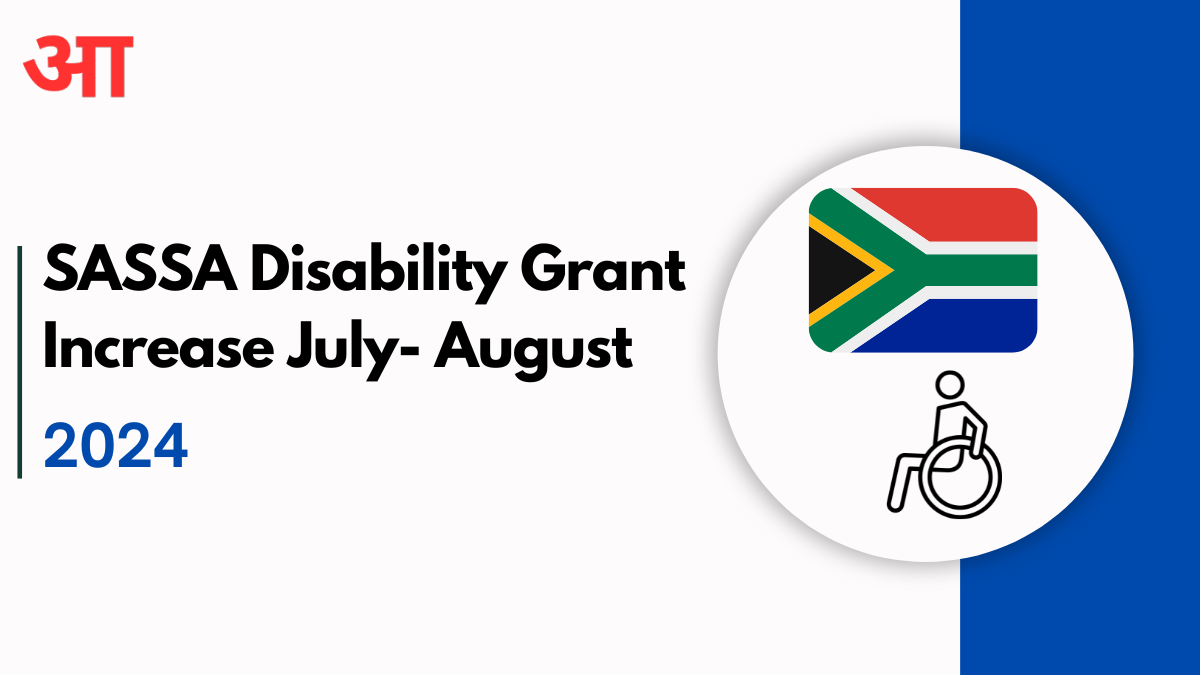The Disability Grant from the South African Social Security Agency (SASSA) is offered by the government of South Africa to provide financial aid to people who are unable to work because of physical or mental disabilities. Citizens, permanent residents, and refugees in South Africa are eligible for this grant. The goal of this grant is to offer assistance and enhance the quality of life for individuals dealing with disabilities.
Contents
SASSA Disability Grant Increase July- August 2024
The grant is designed to provide assistance to individuals with disabilities who encounter challenges when seeking employment. The financial support offered by this grant is intended to help beneficiaries manage vital expenses in their daily routines. The most recent disbursement of funds took place on April 4, 2024.
Check This
Payment Updates
The upcoming payment is scheduled for May 6, 2024. It’s recommended that you verify that the funds have been successfully transferred 3 to 4 days after this date.
Grant Amount Adjustment
The grant amount has been increased by R100. This increase will be implemented in two stages. Firstly, there will be a raise of R90 in April 2024, followed by an additional increase of R10 in October 2024, resulting in a total increase of R100.
April Payment Details
The April 2024 payment is set to be processed on April 4th. It is vital for individuals who are beneficiaries of this grant to be aware that they can anticipate receiving up to R2,180 each month. This financial aid is of great significance as it serves as an essential means of support for individuals with disabilities, allowing them to fulfill their basic needs and cover necessary expenses.
Eligibility
To get the grant, you need to:
- Live in South Africa as a citizen, permanent resident, or refugee.
- Be between 18 and 59 years old.
- Have a 13-digit, bar-coded identity document.
- Earn less than R86,280 per year if you’re single, or R172,560 if you’re married. Your assets should be worth less than R1,227,600 if you’re single or R2,455,200 if you’re married.
- Not be cared for in a state institution.
- Have a medical check-up by a doctor chosen by the state to see how your disability affects your ability to work.
How to apply for the grant?
- Go to the nearest SASSA office.
- Fill out the application form. You can get help from a SASSA officer if you need it.
- Give them your ID, medical reports showing your disability, and other documents, such as proof of income and where you live.
- If you don’t have an ID, fill out an affidavit and get a sworn statement from someone who can confirm who you are.
- You’ll get a receipt after you give them your application and documents. Keep this safe.
What documents do you need?
- 13-digit bar-coded Identity Document (ID): This is a government-issued identification card. It contains your name, date of birth, and a unique 13-digit number. It’s used to confirm your identity in various situations, including when applying for the SASSA Disability Grant.
- Medical Report and Functional Assessment Report: These are documents provided by a healthcare professional that detail your physical or mental disability. The Medical Report includes information about your diagnosis, treatment, and prognosis. The Functional Assessment Report evaluates how your disability affects your daily life and ability to work.
- Proof of Income: This can be a payslip, bank statement, or a letter from your employer. It shows how much money you earn. If you’re self-employed, you might need to provide tax returns or business records.
- Proof of Residence: This can be a utility bill, lease agreement, or a letter from your landlord. It needs to show your name and current address. It’s used to confirm where you live.
- Affidavit (if no ID): If you don’t have an ID, you can provide an affidavit. This is a written statement that you sign and swear is true in front of an authorized person, like a lawyer or a notary public. It should include details about your identity.
- Sworn Statement from a Reputable Individual (if no ID): If you don’t have an ID, you can also provide a sworn statement from a reputable individual. This is a statement from someone who knows you well, like a teacher, doctor, or community leader. They need to confirm your identity in the statement.
Payment Modes
The grant can be paid in three ways:
- Cash at a specific place: You can collect your grant in cash at certain locations.
- Electronic deposit into your bank account: The money can be transferred directly to your bank account. Some banks might charge fees for this.
- Payments can also be made directly to an institution not funded by the state. This is for people who live in care facilities.
Suspension and Lapse Conditions
The grant can be stopped or reduced if:
- Your financial situation or disability changes.
- You don’t cooperate during grant reviews.
- You lie or cheat to get the grant.
- You don’t claim the grant for three months in a row or leave the country.
- You go to live in a state institution.
Important things to remember
- Applying for the grant is free.
- It can take up to three months to process the grant application.
- You have 90 days to appeal the decision if your application is denied.
- If your application is approved, payments are backdated to the date you submitted your application.
This grant is meant to help people with serious disabilities. It gives them financial support when they need it most. If you need any help, you can contact SASSA Officials.
Click the link to know more.

Gaurav, an exam specialist with a passion for education, writes comprehensive articles on exam results and admit cards. His expertise ensures students receive reliable information and useful tips to excel in their exams.
